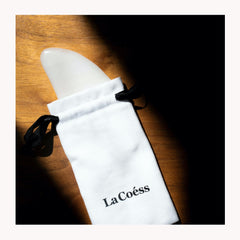

7 Common Skin Care Myths Debunked And The Truth Behind Them


7 Skin Care Myths You Need To Stop Believing
You've probably spent years looking at YouTube beauty gurus or browsing online forums for tips on skin care. Maybe you learned fun facts about your mom and applied them to your beauty routine. Although it might seem difficult to believe, we all have skin care beliefs we hold dear. These beliefs are fiction, not fact. Continue reading to learn about the myths surrounding skin care.
Myth #1: A product is trustworthy if it has been “dermatologist tested”
"Dermatologist tested" is not an official certification. It's just a marketing slogan. Legally, this means that at least one dermatologist tested the product. However, it does not mean the FDA, American Academy of Dermatology or any other organization endorses it. If you are unable to identify the source of endorsement, be wary of this claim.
Myth #2 - Acne stops after your teenage years
Unfortunately, acne doesn't end after your teens. The hormones that cause it don't stop. Hormonal changes throughout life can lead to a resurgence in breakouts long after your teens. A drop in testosterone can cause breakouts in men as they age. Women's hormone levels fluctuate monthly, which can lead to pesky pimples on the neck, jawline, forehead, and forehead. Are hormonal changes affecting hormonal acne or your skin? You should look for skin care products that reduce oily skin and help to improve the appearance and texture of hormonal acne and other skin problems.
RELATED: How to Reduce Inflammation in Skin Naturally - Best Anti-Inflammatory Tips
Myth #3: Facial oils are not for oily skin types
You don't have to avoid facial oils if you have oily skin. You might think that applying oil to your skin is a violation of everything you know about skin care. Facial oils are not meant to make skin look oily or clog pores. Oil applied to the skin helps to calm overactive sebaceous cells, which promotes a more even and balanced skin tone. Some facial oils have additional benefits, such as the ability to improve skin texture and hydration or reduce the appearance of problematic skin.
RELATED: This Is Why Your Skin Need Face Oil
Myth #4: The higher the SPF of your sunscreen, the better
A higher sun protection factor (SPF), above a certain level, has no added benefit over a lower one. Experts recommend sunscreen that has an SPF of 30 or higher, which blocks 97% of UVB radiation. A higher SPF may be worthwhile if you plan to spend more than 2 to 3 hours outside, particularly during peak hours (10 a.m. - 2 p.m.). In most cases, however, an increased SPF is not worth it.
Myth #5: Sunscreen daily leads to Vitamin D deficiency
Although UVB rays can produce Vitamin D, the American Academy of Dermatology suggests that Vitamin D should be obtained from diet and supplements rather than from sun exposure. Vitamin D deficiencies can cause bone loss and other health problems. However, it is more dangerous to expose your skin to the sun and risk of developing skin cancer. Our advice: Our advice?
- Light clothing is best, as well as a hat or sunglasses.
- Using sunscreen daily
- Shade is best
- Vitamin D tablets can be taken if you are concerned about Vitamin D deficiency.
RELATED: Do You Need To Wear Sunscreen Indoors?
Myth 6: Cleansing Your Skin Should Feel Squeaky Clean
Do you feel your skin is tightening or feeling clean after your daily cleansings? This could indicate that your skin is losing its natural oils and more than just dirt from daily cleansing. Perhaps your grandmother used to rub your skin with a washcloth when you were young. This was not only unpleasant but also irritating to the skin. It's important to remember when washing your face regularly, that you are cleansing and not cleaning. The process should be gentler than vigorous.
Warm water is best for cleansing. Use your fingers or a washcloth to gently massage the cleanser onto the skin. Rinse with warm water. You should choose a cleanser that is suitable for your skin type and softens your skin without stripping its natural oils.
Myth 7: Tan is fine as long as you don't burn
This summer skin care myth is untrue. There is no healthy sun tan. You might not be aware that your skin reacts to UV radiation by producing more pigment melanin, which causes the tan. Your skin will change color if it is sensitive to the sun's UV rays. For daily sun protection, you can use sunscreen with SPF 30 or higher. And remember to reapply when you outside for a long period of time.
These skin care myths were shocking to you. Did you know a few skin-care facts? Comment below to let us know.
Read More Natural Beauty Blogs
Our Signature Product
REVITALISÉ Nutrient Organic Face Oil |
| La Coéss® REVITALISÉ is a 100% pure and nourishing nutrients replenishing organic face oil. Sophisticated blends of 15 organic nutrient-dense, powerful botanicals into a silky-smooth texture delivers the exceptional power to revitalize, restore, protect and balance skin. |
 Skip to content
Skip to content






0 comments